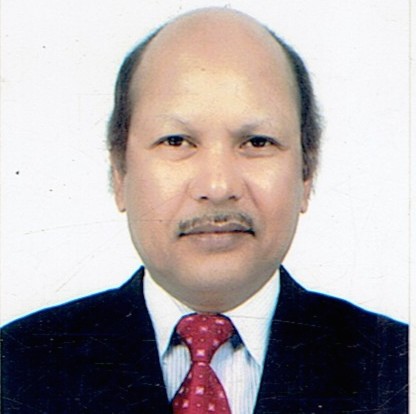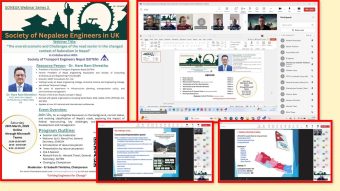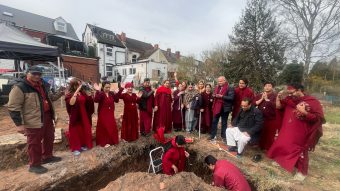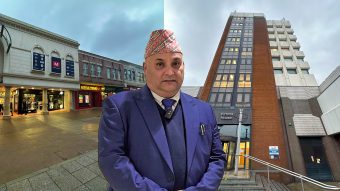BGSUSC threatens of another fast-unto-death at 10 Downing Street



British-Gurkha Satyagraha United Struggle Committee (BGSUSC), an allied Gurkha orgranisation of five Gurkha associations, organised a press conference in Kathmandu on 5 April 2021 and announced to serve ultimatum to the governments of the United Kingdom and Nepal in the first week of May if the United Kingdom government would not address our long-overdue grievances by then. The deadline offered to the governments will expire on 30 June 2021. Regrettably, if the United Kingdom government still would not fulfill the 13-point demands incorporated in the joint technical committee report, then the BGSUSC will be forced to launch another hunger strike at 10 Downing Street, London. First fast-unto-death was staged by a Gurkha veteran Gyanraj Rai in November 2013. Relay hunger strike will commence on 1st July for 13 days in the name of 13 Gurkha Victoria Cross winners that follows fast-unto-death of two Gurkha veterans, Gyanraj Rai and Dhan Bahadur Gurung and a Gurkha widow, Pusparana Ghale. According to chief coordinator, Krishna Rai, an international conference will also be held either in Kathmandu or Hong Kong during relay hunger-strike.
Gurkha soldiers’ distinct characteristics as par excellence percolated into higher British echelon when the Anglo-Nepal War (1814-16) was still going on. Major General David Ochterlony, principal strategist of British-India army during the Anglo-Nepal War, and Captain Frederick Young were the key architects of the idea of recruiting martial race Gurkhas into the army of British East-India-Company (BEIC). BEIC formally but unilaterally began to recruit our ancestors into its army on 24 April 1815. BEIC at that point in time having been in direst need of larger army to build up hitherto obtained colonies as well as to build up new ones across the globe. Therefore, British-India aspired big number of recruits from Nepal’s hill but to no avail because of uncooperative attitudes of the Prime Ministers Bhimsen Thapa and Jung Bahadur Rana.
Henry Old Field stated as for Bhimsen Thapa thus: “Nothing is dearer and nearer to his heart than the indepencence of his country.” Therefore, Thapa was obviously against the recruitment institution. Jung Bahadur Rana always employed some manoeuvres in respect of recruitment. In presence of British officials, Rana seemed to have been straining to accomplish the recruitment drive launched by BEIC; but, whenever he was with his Nepalese officials, he would order them to thwart it.
The long-drawn-out opposing attitudes of Nepalese rulers compelled the BEIC to implement clandestine modus operandi to recruit Nepalese youths into its army. They would dispatch illegal recruiters into deep Nepalese territories as well as to places where fairs were organised. Once encountered potential recruits, recruiters would, first of all, offered them some money afterwards alcohol and then only they would persuade them into joining their army. The recruiters could move the recruits only at night and risked even execution if they were caught. For orders were issued to the security forces to shoot the illegal recruiters at sight if found them within Nepalese territories.
Further, the recruiters had to take the recruits through unknown routes to avert chasssing by the wailing parents to return their loved ones (sons) home. Because the recruitment tradition in the remote, poor hilly villages of Nepal was detested since most boys recruited into BEIC army never returned home. Another factor that made this institution so unpopular was the glaring discriminations meted out to the Grukhas by Britain. Notwithstanding, colonial government perpetuated its tenacious striving until mid 1970s as such detestation existed till then.
Thenceforth, the situation dramatically transformed as much less wars began to occur vis-a-vis in the past. And partly because Britain began to base one Gurkha battalion in Britain in rotation and, consequently, the Gurkhas began to make a little more money than before.
British generals were blindingly impatient to mobilise the Gurkhas in wars to ascertain their loyalty, hardihood, and intrepidity. Hence, they rushed to mobilise the Gurkhas in several wars one after another. The Gurkhas got through the ordeal by demonstrating highest level of allegiance, fortitute and gallantry.
Historians deal with only the First and Second World Wars. In fact, not to mention as to the nemerous wars fought by the Gurkhas before the First World War and after the Second World War would be a grave injustice to them. Nevertheless, the Gurkhas primarily proved decisive in the First War of Indian Independence and in the two devastating World Wars. Sans the crucial role of the Gurkhas essentially in the aforementioned wars, Britain would have bitten the dust. After the First War of Indian Indepencence, the British RaJ assumed its direct rule from London.
Contributions of the Gurkhas to the British Crown is so immense that in reality we have been shedding a river of blood, sweat and tears for the last 206 years. Tens of thousands of Gurkhas laid down their lives for the sole interest of Britain, tens of thousands were wounded and thousands disappeared and maimed. Further, during the First and Second World Wars, Nepalese Prime Ministers Chandra Shumshere and Juddha Shumshere spontaneously made entreaty to British king to utilise all resources available then in Nepal on his discretion. As a matter of fact, during the oligarichic Rana regime, colonial rule in India and the oligarchic Rana rule in Nepal depended on each other’s support and cooperation. Such huge sacrifice of the Gurkhas prolonged the Crown rule in India and beyond. The modernity, development, porsperity and power of modern-day United Kingdom are the outcomes of the Gurkha blood and sacirfice. Humiliatingly, The British Raj had indirectly usurped the defacto right of Nepal. The Fattejung government formed in 1845 AD was called “English ministry” as it was installed in the recommendation of the then British resident John Russell Colvin. This is only a representative occurrence. Realistically, such phenomena were common in Kathmandu till the familial Rana rule was collapsed in 1951 AD. Albeit this is the bitter reality, Nepalese leaders, intellectuals and historians never get exhausted by gloating about Nepal’s independence and sovereignty, and that the country was never colonised.
Nonetheless, the Gurkhas have been treated as semi-slaves. Until the late 1990s, there existed 15 times gap in salary, allowances and pensions between the Gurkhas and their British counterparts. Perks and benefits provided to us were also mere peanuts vis-a-vis offered to white soldiers. Now too, there exists more than three times gap in pensions. The conundrum is why Britain is so calously treating the Gurkhas. Britain kept the Gurkhas in enclave for the last two centuries. It has limited itself to writing hagiographic treatises as regards Gurkhas; but, when it comes to treatement, it has been treating us as second class human beings. The Gurkhas even suffered the arrogant, boyish mistreatment of British officers.
Further, Britain has violated the spirit of the tripartite treaty (doctrine of pleasure), zeitgeist, human rights, race-relation act of Britain, article 1 of the UN charter and whatnot.
As a result, retired Gurkhas have galvanised themselves into protest movement for the past six-lustrum in order to get equality, justice and dignity. Over the past six-lustrum, the Gurkhas did everything they could both in Britain and Nepal together with a fast-unto-death to get addresed our genuine demands. Disappointingly, it has not happened yet. Having worked our fingers to the bone in dealing with the Nepal government, it has, more than a year back, dispatched a letter to the British government requesting to initiate dialogues to resolve the Gurkha issues. Still, it has not taken any iniatives.
The States and France also had foreign soldiers in their army and had meted out discriminations against them. But they resolved a long time back. Now Britain is the only nation in the world which seems determined to perpetuate discriminations making various implausible excuses. Albeit it is a matter of sovereignty and independence, Nepal government lacks seriousness in this regard. Nepalese youths have also been serving in Singapore as policemen for the past seven decades. The British government recruits Nepalese youths for Singapore police and retired Gurkhas for Brunei. A British-Gurkha battalion has also been based in Brunei. Nonetheless, no treaty has been concluded between Nepal, Singapore and Brunei to gevern these sensitive entities.
Here also, Britain pays much less to the Gurkhas than actually it compells to cough up the concerned governments. It seems like a human trade. A scholar Mery Des Chene writes: “Gurkhas have been sold and bartered and they have been the coin of international diplomacy at key moments in Nepalese history.” Now a grave question arises: who authorised this arrangement? The irony of ironies is: “Sovereign Britain recruits nationals of sovereign Nepal for the sensitive service of the sovereign Singapore and Brunei”. Is not it a dishonourable issue? Thus there seems an exigency for both Britain and Nepal to take immediate and serious actions to resolve all these issues.
(Ram Kandangwa has a PhD in Nepal-Britain Relations with Special Reference to Gurkhas and works as the spokesperson of the BGSUSC)
सम्बन्धित सामग्रीहरू
हाम्रो सिफारिस

बेलायतको पृथक नेपाली संस्था जसको प्राथमिकता छ पुस्तान्तरण, च्यारिटी र वेलबिइङ (भिडियो)
- १
- २
- ३
- ४
- ५










